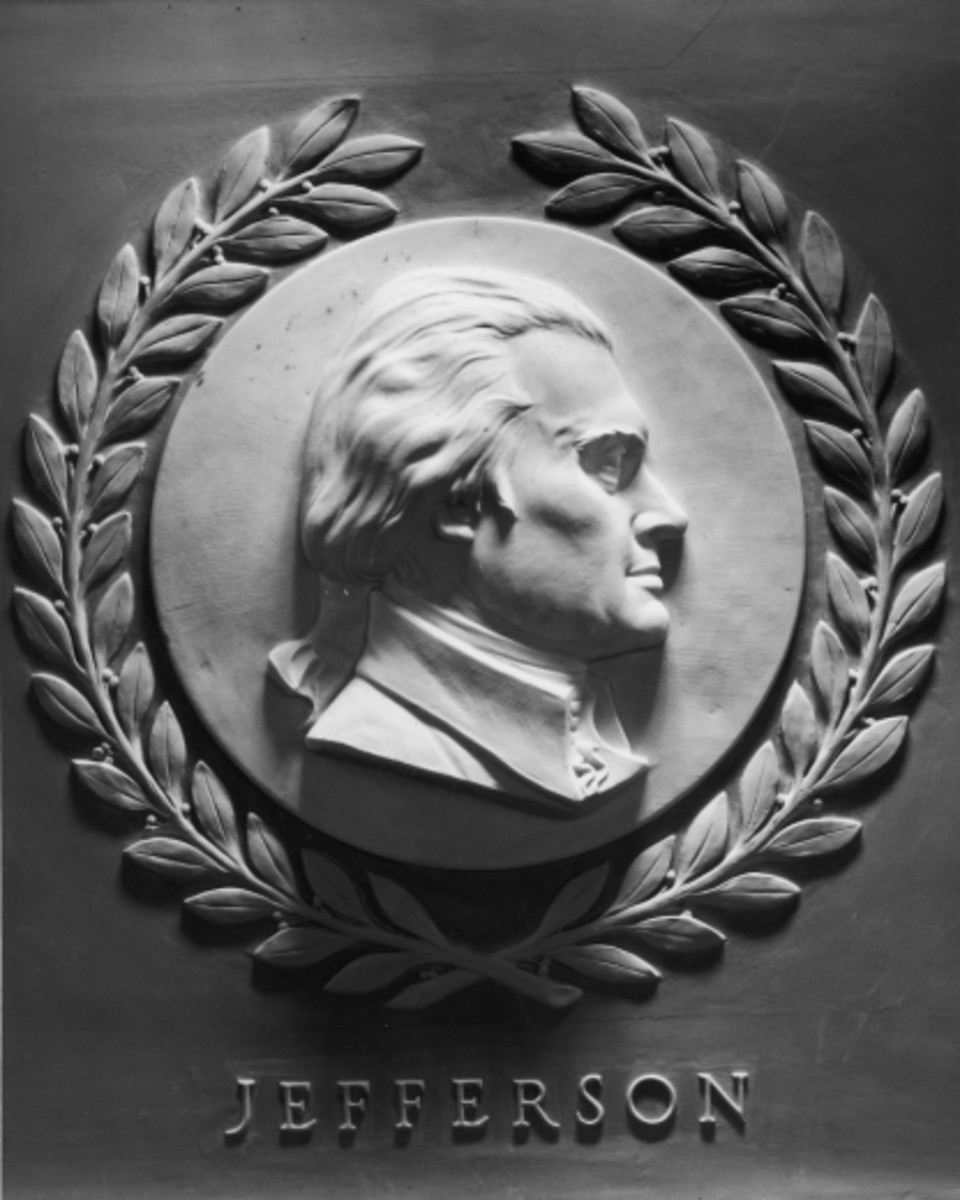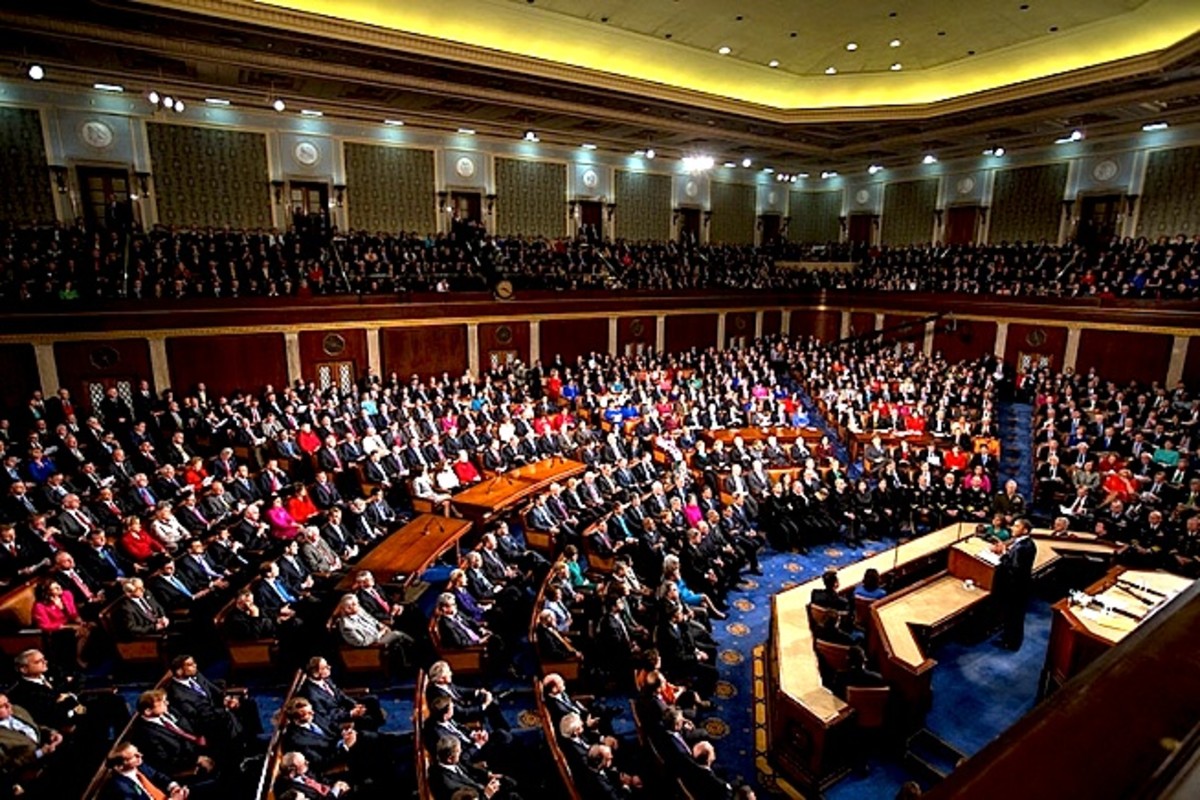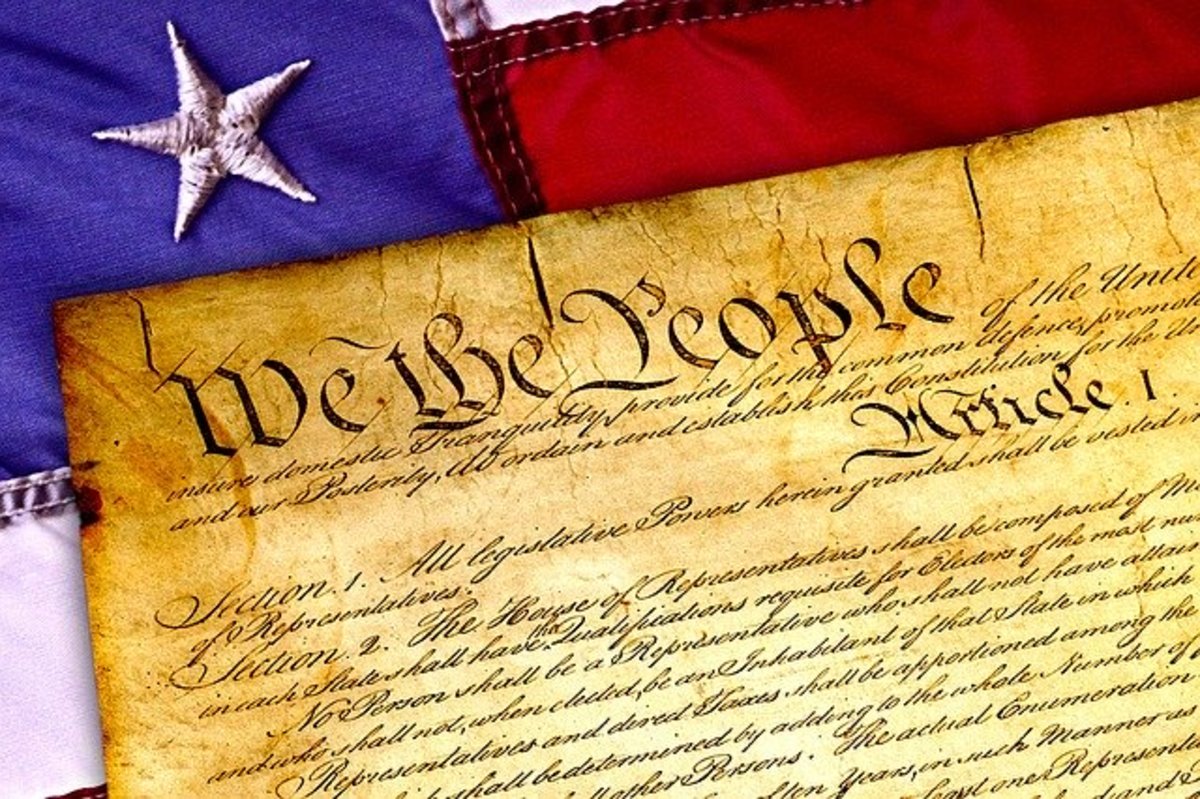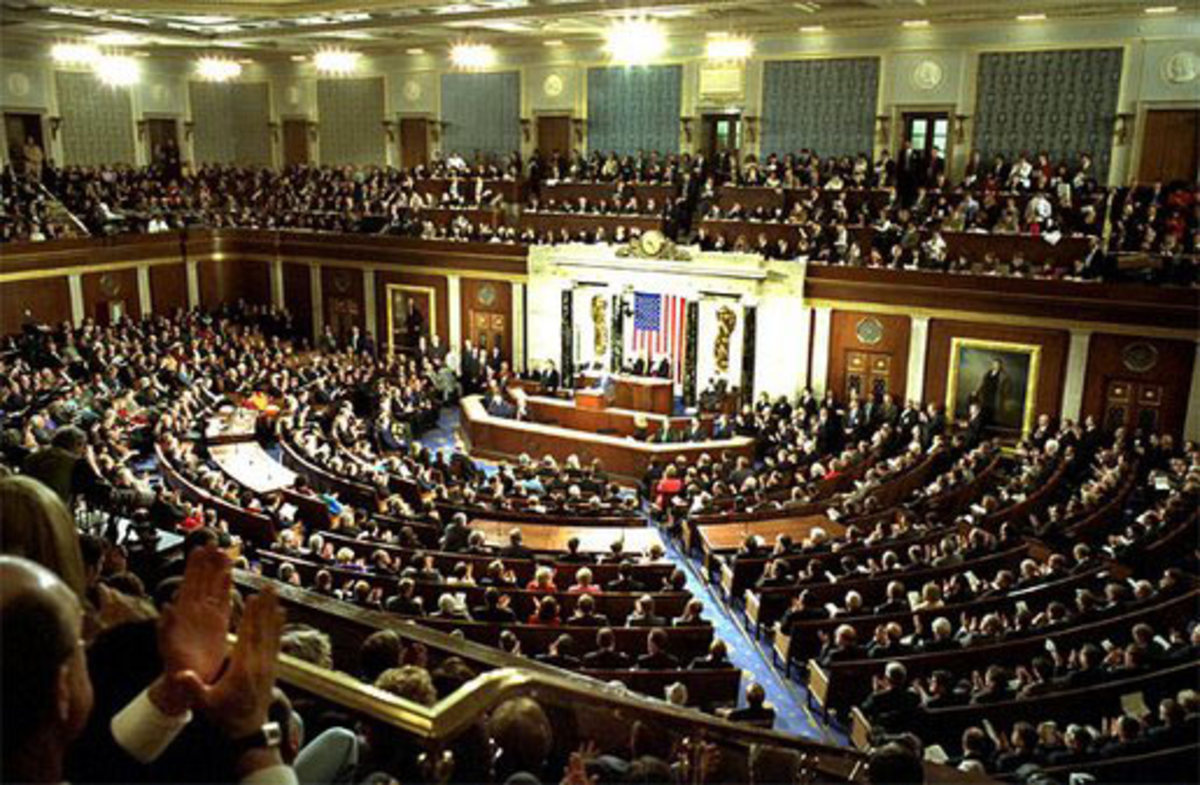Congresses Constitutional Priorities
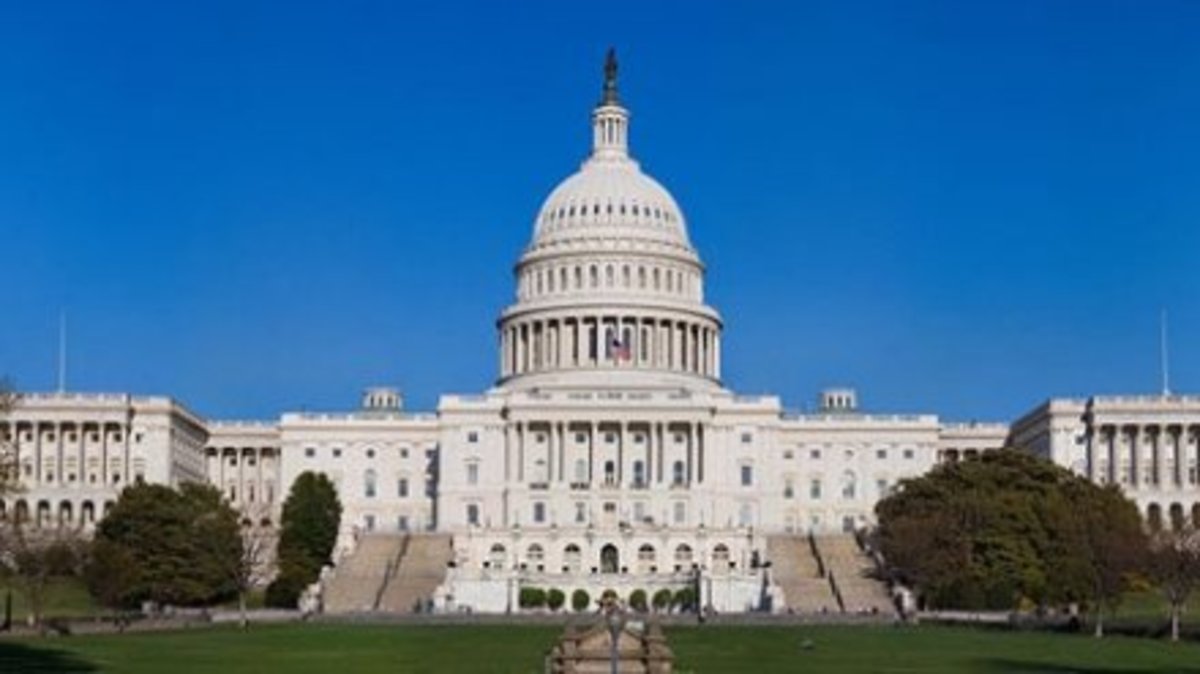
Over the last couple of years Congress has often had trouble establishing a national budget, preferring to take up business that many hope will be undone in the years ahead. Many citizens have been angered that the business they are supposed to be doing is being neglected in favor of attempts to grab power from the people and from the states. Because of that I found myself questioning just exactly what is their job supposed to be anyway? This article reviews the document that lists the responsibilities of Congress, our Constitution, and reorders that as a prioritized list for Congressional business.
Constitutional Roles and Responsibilities
Civics 101. Congressmen are elected to fulfill the role of representation. Representatives of the House are elected to represent the people of the constituency of their district. Senators are supposed to represent the legislature of their states. The role of representation is to speak for someone else. Representation is not about speaking for yourself, and it is not about speaking for what you believe to be best. Many people believe that our congressman knows best, so trust in them. Unfortunately, this trust has been undermined by the influence of partisan politics, political lobbying, and the apparent attitude of some Congressman to do things ‘because nobody can stop us’. These influences steer our representatives away from being true to their role within our government.
Our representatives responsibilities are listed in Article I, section 8 of the Constitution. Those powers are subject to the restrictions of Article I, section 9, and the first ten amendments, the well understood Bill of Rights. These are listed as Congressional powers. If you review the list of powers (or responsibilities), you will note that there is a wide selection of action verbs that are used. Verbs such as: provide, promote, lay and collect, pay, borrow, regulate, establish, coin, constitute, define and punish, declare, raise, make, and exercise. These all have subtly different meanings with respect to the extent of the action intended to be allowed by the original authors of our Constitution. Moreover, the majority of these words have not been changed by the subsequent amendments to our Constitution. However, that has not stopped a progressive tendency to interpret and/or ignore the original text of the Constitution in order to construct arguments that permit the assumption of additional powers by the federal government. (My grandfather used to use the term ‘loop-holing’ for this type of effort).
Verbs of the Constitution
A quick visit to Merriam-Webster.com or other dictionary web-site (in the old days we had books for this) allows me to offer the following as the most likely intended meanings of those words:
- Borrow - to borrow money with the intention of returning the same plus interest
- Coin - to convert metal into coins
- Constitute – set up or establish
- Declare - to make known formally, officially, or explicitly
- Define - to explain or identify the nature or essential qualities of; describe
- Establish – to bring into existence; to make firm or stable; to institute permanently by enactment or agreement
- Exercise – to discharge a function
- Lay and Collect - to impose as a burden, duty, penalty, or the like &&& to receive or compel payment of
- Make - create
- Pay - to discharge a debt or obligation
- Promote - to aid in organizing
- Provide - to supply or equip (for the military phrases) and to arrange for or stipulate beforehand, as by a provision or proviso (for the counterfeiting punishments)
- Punish - to inflict a penalty for
- Raise - to assemble or collect
- Regulate - to control or direct by a rule, principle, method,
Now that we have definitions, I'm going to attempt to list these in some sort of order.
One Way to Prioritize The Verbs
No ordering will be absolutely correct, the best you can do is to pick a means of ordering based on some arbitrary but defined value, and use your interpretation of that value as justification for the ordering. I tried ordering by my subjective interpretation of ‘strength’ of the verb, but when I looked at the list, it did not make sense to me. As I reviewed the list, I finally settled on the rationale below, associating in some way the various roles of the federal government with priorities for conducting its business. Remember, this is just one approach, but since the current approach has all the appearances of organized chaos, I am comfortable with putting something I regard as reasonably sensible on the table for consideration.
My argument for ordering this list is essentially as follows: Functions where the federal government is acting as our face to other nations on behalf of the collection of States are at the top of the list. Functions where the federal government is acting in the role of an intermediary between the states are put in the middle. Functions where the federal government is acting in support of the individual are listed last. Verbs that have an ‘imperative’ connotation have higher rank than verbs that have an ‘optional’ connotation.
Remember, we are only talking about the items and verbs listed in the Constitution, and are not yet worrying about how the Constitution has been interpreted to provide authority for all the powers that the federal government has assumed.
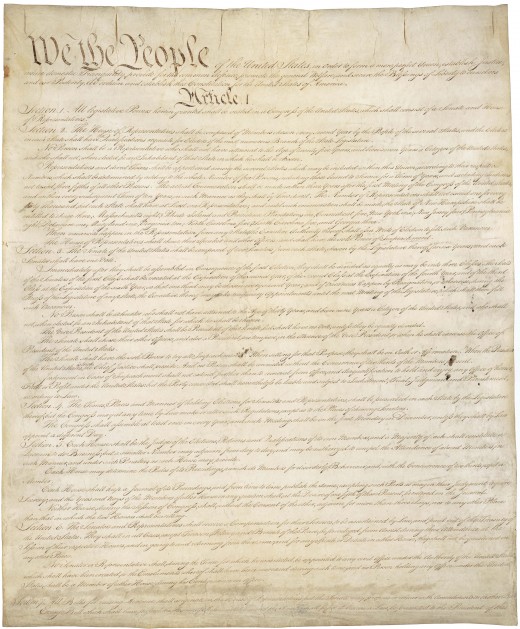
Responsibilities Prioritized
So, here is my offering on how the powers we have granted to our Congressmen should be prioritized. The Congress shall have Power To:
Highest
- provide for the common Defence
- establish a uniform Rule of Naturalization, and uniform Laws on the subject of Bankruptcies throughout the United States;
- regulate Commerce with foreign Nations,
- define and punish Piracies and Felonies committed on the high Seas, and Offences against the Law of Nations;
- declare War, grant Letters of Marque and Reprisal, and make Rules concerning Captures on Land and Water;
- raise and support Armies, but no Appropriation of Money to that Use shall be for a longer Term than two Years;
- provide and maintain a Navy;
- provide for calling forth the Militia to execute the Laws of the Union, suppress Insurrections and repel Invasions;
- provide for organizing, arming, and disciplining, the Militia, and for governing such Part of them as may be employed in the Service of the United States, reserving to the States respectively, the Appointment of the Officers, and the Authority of training the Militia according to the discipline prescribed by Congress;
Middle
- make Rules for the Government and Regulation of the land and naval Forces;
- provide for the general Welfare of the United States
- regulate Commerce among the several States,
- regulate Commerce with the Indian Tribes,
- establish Post Offices and post Roads;
- constitute Tribunals inferior to the supreme Court;
- lay and collect Taxes, Duties, Imposts and Excises
- pay the Debts
- borrow Money on the credit of the United States;
Last
- coin Money, regulate the Value thereof, and of foreign Coin, and fix the Standard of Weights and Measures;
- provide for the Punishment of counterfeiting the Securities and current Coin of the United States;
- promote the Progress of Science and useful Arts, by securing for limited Times to Authors and Inventors the exclusive Right to their respective Writings and Discoveries;
- make all Laws which shall be necessary and proper for carrying into Execution the foregoing Powers, and all other Powers vested by this Constitution in the Government of the United States, or in any Department or Officer thereof.
- exercise exclusive Legislation in all Cases whatsoever, over such District (not exceeding ten Miles square) as may, by Cession of particular States, and the Acceptance of Congress, become the Seat of the Government of the United States, and to exercise like Authority over all Places purchased by the Consent of the Legislature of the State in which the Same shall be, for the Erection of Forts, Magazines, Arsenals, dock-Yards, and other needful Buildings;--And
- Promote the general Welfare (of the people, not provide)
The last item is added from the preamble to the Constitution, since it appears to be an intended responsibility of our government. It is separate from the explicitly listed responsibility to provide for the general welfare of the combined United States.
Learning the Constitution
- Transcript of the Constitution of the United States - Official
- The Center for the Constitution at James Madison's Montpelier | Center for the Constitution
This center provides "constitutional education for educators, journalists, elected officials, law enforcement, judges, international visitors, and business leaders."
Why Do This?
As mentioned above, the current approach appears to be disorganized chaos, and reminds many folks of schoolchildren playing 'King of the Hill'. Whichever partisan group is in power carries the monarchs hammer. I do not understand how our 111th Congress could declare that they had done an outstanding job when so many of their responsibilities were deferred and left to the next Congress. At the same time their energy was used on things that are not explicitly mentioned in the Constitution as being part of their responsibility. We all see it happening, but, the responsibility is ignored, or they seem to have become so accustomed to playing ruler that they no longer care about their responsibilities. Hopefully this changes in future Congresses.
Hopefully this act of putting an opinion out there for discussion will encourage others to ask their Congressmen the question "How do you prioritize your constitutionally enumerated responsibilities?”
We can also ask for some transparency with respect to this aspect of the Congressional process. It is my opinion that explicit items of responsibility should be dealt with first, before we add to the already overwhelming list of questionable powers our government has assumed.
The 111th Congress proposed H.R. 450: 'The Enumerated Powers Act'. That Act requires traceability back to Constitutional Authority for all acts brought before Congress. One way to begin the prioritization would be to strongly question those acts of Congress that have no traceability at all.
Post Publication Additions
Early January 2011 - One of the first acts of The 112th Congress was to pass H.R. 5, which included trace-ability to the Constitution (from 111th Congress H.R. 450) as one of the rules for conducting Congressional business.


